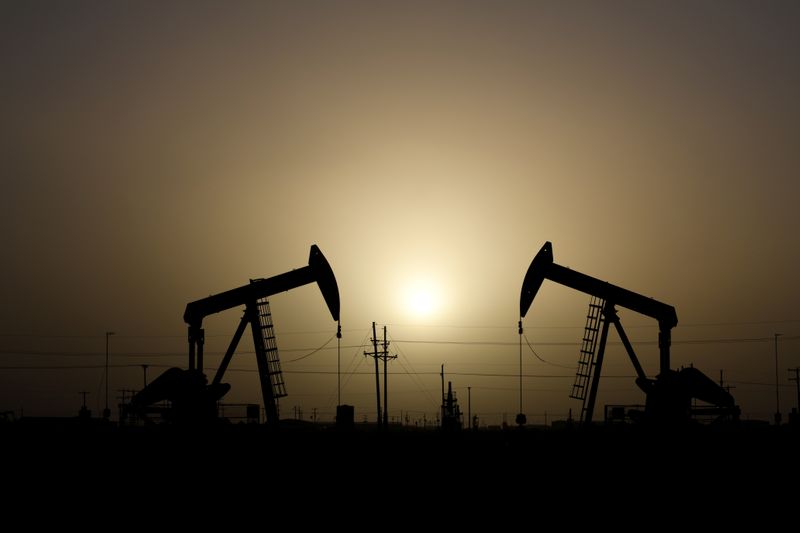TOKYO (Reuters) - Oil prices fell on Thursday as major producers warned of a risk to the recovery in demand if the coronavirus crisis is prolonged, while U.S. crude inventories dropped less than expected.
Brent crude (LCOc1) was down 28 cents, or 0.6%, at $45.09 by 0049 GMT after slipping 0.2% in the previous session.
U.S. oil (CLc1) was down 31 cents, or 0.7%, at $42.62 a barrl, after inching higher on Wednesday.
Stockpiles of crude in the United States fell last week for a fourth straight week, even as net imports rose. However, the 1.6 million barrel decline was less than a Reuters poll showing expectations for a 2.7 million barrel fall.
Still, stockpiles are expected to continue declining, according to analysts.
"We expect that total crude stocks will continue to head towards their five-year average in the weeks ahead as U.S. production remains subdued," Capital Economics said in a note.
Fuel demand was down 14% from the year-earlier period over the last four weeks, Energy Information Administration data showed. [EIA/S]
Global oil demand should recover to pre-pandemic levels as soon as the fourth quarter, the Saudi Energy minister said on Wednesday, while urging partners to comply with a deal to cut output.
He was speaking at a virtual meeting of the Organization of the Petroleum Exporting Countries (OPEC) and allies such as Russia - a grouping known as OPEC+. The meeting was reviewing compliance with production cuts and left output reductions unchanged.
A draft OPEC+ statement, seen by Reuters, said a second extended wave of the pandemic posed a major risk for the oil market recovery.
The group pressed members such as Nigeria and Iraq to do more to meet their quotas after they exceeded them between May and July.

OPEC alone in the past decades generally produced well over 30 million barrels per day (bpd) of oil but after this year's cuts its output stood at 20-22 million bpd.